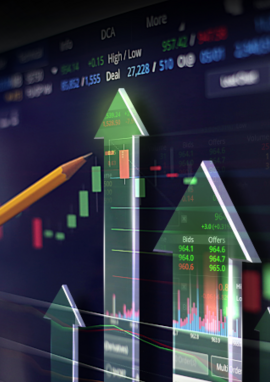SCOR Foundation Webinar | Is Inflation Coming back? If so Why?
by Gilles Saint-Paul, Professor of Economics at the Ecole Normale Supérieure and at the Paris School of Economics – March 28, 2022

“Is Inflation Coming back? If so Why?” by Gilles Saint-Paul, Yrjö-Jahnsson prize (2007), graduate of the Ecole Polytechnique, PhD from the Massachusetts Institute of Technology, professor of Economics at the Ecole Normale Supérieure and at the Paris School of Economics where he holds the SCOR Chair on “Macroeconomic Risk".
Monday the 28th of March 2022, Gilles Saint-Paul delivered an online conference on “Is Inflation Coming back? If so Why?”. In this conference, Gilles Saint-Paul challenged the current expert view on a short-lived inflationary shock in view of what economic history and theory teach us. He stressed that the options for the future are more open than the consensus view anticipates and that extreme scenarios of exploding inflation in the coming months cannot be excluded. Gilles Saint-Paul, is Yrjö-Jahnsson prize (2007), graduate of the Ecole Polytechnique, PhD from the Massachusetts Institute of Technology, professor of Economics at the Paris School of Economics where he holds the SCOR Chair on “Macroeconomic Risk.
Summary
In his presentation Gilles Saint-Paul insisted on the distinction between the short-term and the long-term causes of inflation. While in the short term inflation is driven by shocks to costs and aggregate demand, in the medium and long term it is a political choice between accommodating those shocks through a lenient monetary policy and bringing inflation back to its long-run target. Short-term shocks that may raise the price level -- but not the inflation rate -- once and for all may trigger indexation mechanisms which, through a wage-price spiral and accommodative monetary policy, may end up raising the inflation rate permanently.
Once these slippery slopes were understood, devices such as central bank independence and strong price stability mandates were implemented during the 1980s so as to curb the double digit inflation rates of the 1970s. As a result at the turn of the century inflation was largely dismissed as an issue by most macroeconomists. The liquidity trap era of the 2010s allowed central banks to inject considerable liquidity into the economy so as to support aggregate activity and the banking sector, yet this explosion in monetary aggregates did not lead to a surge in inflation.
Gilles Saint-Paul argued that the recent adverse supply shocks triggered by the COVID crisis and the war in Ukraine might durably put an end to this low inflation era, despite claims by central banks that such events will only have a transitory effect. In addition to the recent cost-push inflation, there is an overhang of liquidity that households have refrained from spending up to now, due to considerable uncertainty about the future. Yet if inflation nears 10 %, the cost of hoarding this liquidity becomes quite high and there will be a rush to spend it. Furthermore, it is plausible that the drop in living standards will reignite indexation mechanisms.
Central banks will then face a dilemma between their current lenient monetary policy which will reignite the wage-price spital and a substantial rate hike that will trigger a recession and a collapse in asset values. Recent timid moves by the Bank of England in response to news about two-digit inflation rate suggests considerable reluctance to opt for the “hard way”. One key reason for this is the explosion of public debt, which produces another dilemma: By committing to asset purchases Central Banks have prevented protracted deficits from degenerating into a wave of sovereign defaults. To fight the coming inflation monetary authorities will have to renege on this commitment, and thus run the risk of a massive recession triggered by a fiscal crisis – as was experienced in Greece in the early 2010s. If they are not willing to take this risk the possibility of hyperinflation due to monetary financing cannot be discarded, unless governments take steps to reduce those deficits to sustainable levels.
